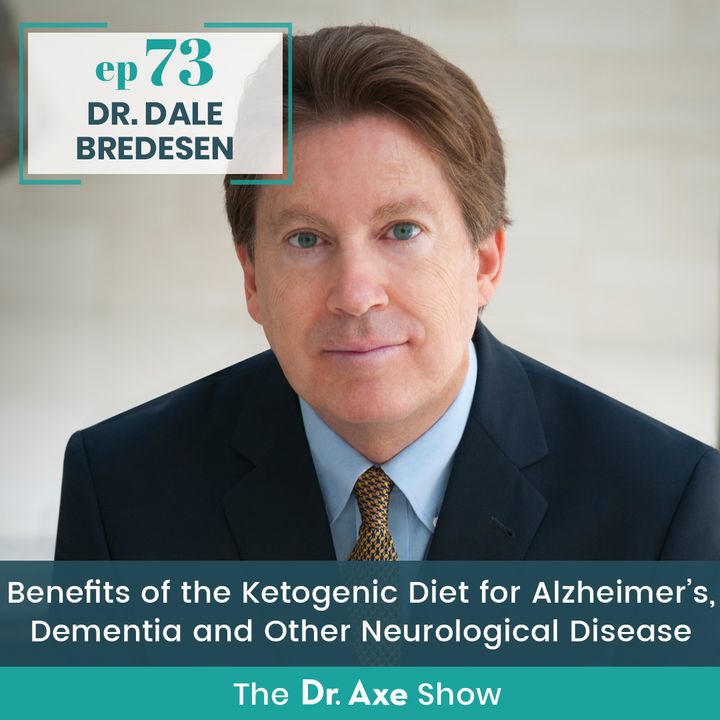Dale Bredesen Quack: Debunking The Myths And Exploring The Science
Dale Bredesen, a renowned neurologist, has become a controversial figure in the world of Alzheimer's research, with some labeling him as a "quack." But is this reputation justified? In this article, we will explore both sides of the argument, examining the evidence and separating fact from fiction.
Dale Bredesen's work in the field of neurology has sparked significant debate. While some praise his innovative approach to Alzheimer's disease, others criticize his methods, calling them unscientific. This article aims to provide a balanced view, helping readers understand the complexity of the situation.
Through this exploration, we will delve into the science behind Bredesen's protocols, assess the validity of claims against him, and provide insights based on credible research and expert opinions. Let's begin by understanding who Dale Bredesen is and what he represents in the world of medicine.
Read also:September 6 Florida Man The Intriguing Story That Made Headlines
Table of Contents
- Biography of Dale Bredesen
- Reputation: Dale Bredesen Quack?
- The Bredesen Protocol: A Closer Look
- The Science Behind the Protocol
- Criticism and Controversies
- Evidence Supporting the Claims
- Alternative Perspectives
- Patient Experiences and Testimonials
- Ongoing Research and Studies
- Conclusion
Biography of Dale Bredesen
Dale Bredesen is a prominent figure in the field of neurology, best known for his work on Alzheimer's disease. Below is a detailed overview of his life and career:
Data and Biodata of Dale Bredesen
| Full Name | Dale Eric Bredesen |
|---|---|
| Profession | Neurologist, Author, Researcher |
| Education | Stanford University, Duke University Medical Center |
| Specialization | Neurodegenerative Diseases, Alzheimer's Research |
| Notable Works | "The End of Alzheimer's," "The First Survivors of Alzheimer's" |
Bredesen's career has been marked by groundbreaking research and innovative approaches to treating neurodegenerative diseases. His work has challenged conventional wisdom, earning both praise and criticism from the scientific community.
Reputation: Dale Bredesen Quack?
The term "quack" is often used to describe individuals whose medical practices are considered unscientific or fraudulent. In the case of Dale Bredesen, this label has been both embraced and rejected by different groups. Let's examine why some people view him as a quack:
- Unorthodox Methods: Bredesen's approach to treating Alzheimer's disease involves a multi-faceted protocol that includes lifestyle changes, diet, and supplements. This contrasts sharply with traditional pharmaceutical treatments.
- Lack of Peer-Reviewed Studies: Critics argue that Bredesen's protocols lack sufficient evidence from large-scale, randomized controlled trials.
- Commercialization: Some critics point to the commercial aspects of Bredesen's work, including the sale of supplements and programs, as evidence of his "quack" status.
Despite these criticisms, many patients and advocates believe that Bredesen's work offers hope where traditional medicine has failed. The debate continues to evolve as more research becomes available.
The Bredesen Protocol: A Closer Look
The Bredesen Protocol, also known as the ReCODE protocol, is a comprehensive program designed to address the root causes of Alzheimer's disease. It focuses on personalized medicine, tailoring treatments to individual patients based on their unique genetic and lifestyle factors.
Key Components of the Protocol
- Dietary Changes: Emphasizing a low-carb, high-fat diet to improve brain health.
- Exercise: Regular physical activity to boost cognitive function.
- Sleep Optimization: Ensuring adequate and restful sleep to support brain repair.
- Supplements: Using targeted supplements to address specific deficiencies.
The protocol is based on the premise that Alzheimer's disease is caused by a combination of factors, rather than a single genetic mutation. By addressing these factors, Bredesen believes it is possible to reverse or slow the progression of the disease.
Read also:What Political Party Does Mr Beast Support Unveiling The Truth Behind The Youtube Sensation
The Science Behind the Protocol
Bredesen's approach is grounded in scientific research, drawing on decades of study in the field of neurology. His work focuses on the concept of "cognitive decline as a network imbalance," suggesting that Alzheimer's disease is the result of an imbalance in the brain's repair and degeneration processes.
Key studies supporting this theory include:
- A 2014 study published in Aging that demonstrated cognitive improvement in patients following the protocol.
- Ongoing research at the Buck Institute for Research on Aging, where Bredesen serves as a faculty member.
While the science behind the protocol is promising, more research is needed to confirm its efficacy on a larger scale.
Criticism and Controversies
Despite the positive results reported by some patients, the Bredesen Protocol has faced significant criticism from the medical community. Critics argue that:
- The lack of large-scale clinical trials undermines the credibility of the protocol.
- Some aspects of the protocol, such as the use of specific supplements, lack scientific backing.
- The commercialization of the protocol raises ethical concerns about patient exploitation.
Proponents of the protocol counter these criticisms by pointing to the success stories of patients who have experienced improvements in cognitive function. They argue that traditional medicine has failed to offer effective treatments for Alzheimer's disease, making alternative approaches worth exploring.
Evidence Supporting the Claims
While the Bredesen Protocol remains controversial, there is evidence to support its effectiveness. A 2018 study published in the Journal of Alzheimer's Disease found that patients following the protocol experienced significant improvements in cognitive function.
Additionally, patient testimonials and case studies provide anecdotal evidence of the protocol's potential. For example:
- A 65-year-old woman diagnosed with early-stage Alzheimer's reported improved memory and cognitive function after six months on the protocol.
- A 70-year-old man with mild cognitive impairment regained the ability to perform daily tasks following adherence to the protocol.
These stories, while not definitive proof, offer hope to those seeking alternative treatments for Alzheimer's disease.
Alternative Perspectives
While the Bredesen Protocol has garnered attention, it is not the only approach to treating Alzheimer's disease. Other researchers and organizations are exploring a variety of treatments, including:
- Pharmaceutical Treatments: Ongoing research into drugs that target beta-amyloid plaques and tau tangles in the brain.
- Stem Cell Therapy: Investigating the potential of stem cells to repair damaged brain tissue.
- Gene Therapy: Exploring the possibility of modifying genes associated with Alzheimer's disease.
Each of these approaches has its own set of challenges and limitations, highlighting the complexity of Alzheimer's research.
Patient Experiences and Testimonials
For many patients, the Bredesen Protocol represents a lifeline in the fight against Alzheimer's disease. Below are some testimonials from individuals who have benefited from the protocol:
- "After years of decline, I finally feel like I have my life back. The protocol was challenging, but the results were worth it."
- "I was skeptical at first, but the improvements in my cognitive function have been remarkable."
While these stories are inspiring, it is important to approach them with a critical eye, recognizing that individual results may vary.
Ongoing Research and Studies
The field of Alzheimer's research is rapidly evolving, with new studies and discoveries being made regularly. Current research focuses on:
- Understanding the role of inflammation in Alzheimer's disease.
- Developing biomarkers to detect the disease in its early stages.
- Exploring the potential of lifestyle interventions in preventing cognitive decline.
As more data becomes available, the scientific community will gain a clearer understanding of the effectiveness of treatments like the Bredesen Protocol.
Conclusion
In conclusion, the debate surrounding Dale Bredesen and his protocols highlights the challenges and complexities of Alzheimer's research. While some critics label him as a "quack," many patients and advocates believe his work offers hope for a cure.
This article has explored both sides of the argument, examining the science behind the protocol, addressing criticisms, and highlighting patient experiences. As research continues, it is crucial to approach this topic with an open mind, recognizing the potential benefits and limitations of alternative treatments.
We invite you to join the conversation by leaving a comment below or sharing this article with others who may find it helpful. Together, we can continue to explore the possibilities for treating Alzheimer's disease and improving the lives of those affected by this devastating condition.
Friar Talk 247: Your Ultimate Guide To Understanding The World Of Sports Talk Radio
Where Is Hibbing Minnesota? A Comprehensive Guide To Discovering This Iconic City
Mastering Raspberry Pi Network Tunnel: A Comprehensive Guide

73. Dr. Dale Bredesen Benefits of the Ketogenic Diet for Alzheimer's

Dale E. Bredesen Omega

Dale Bredesen, MD Integrative Practitioner